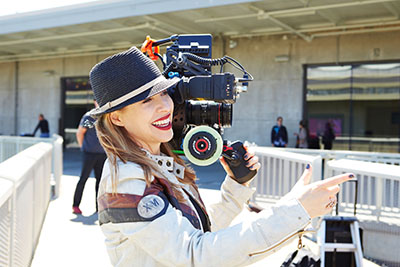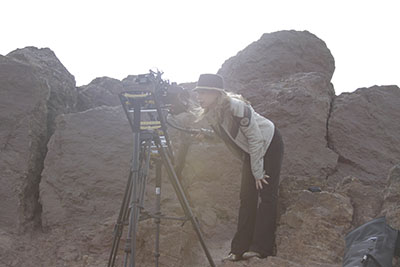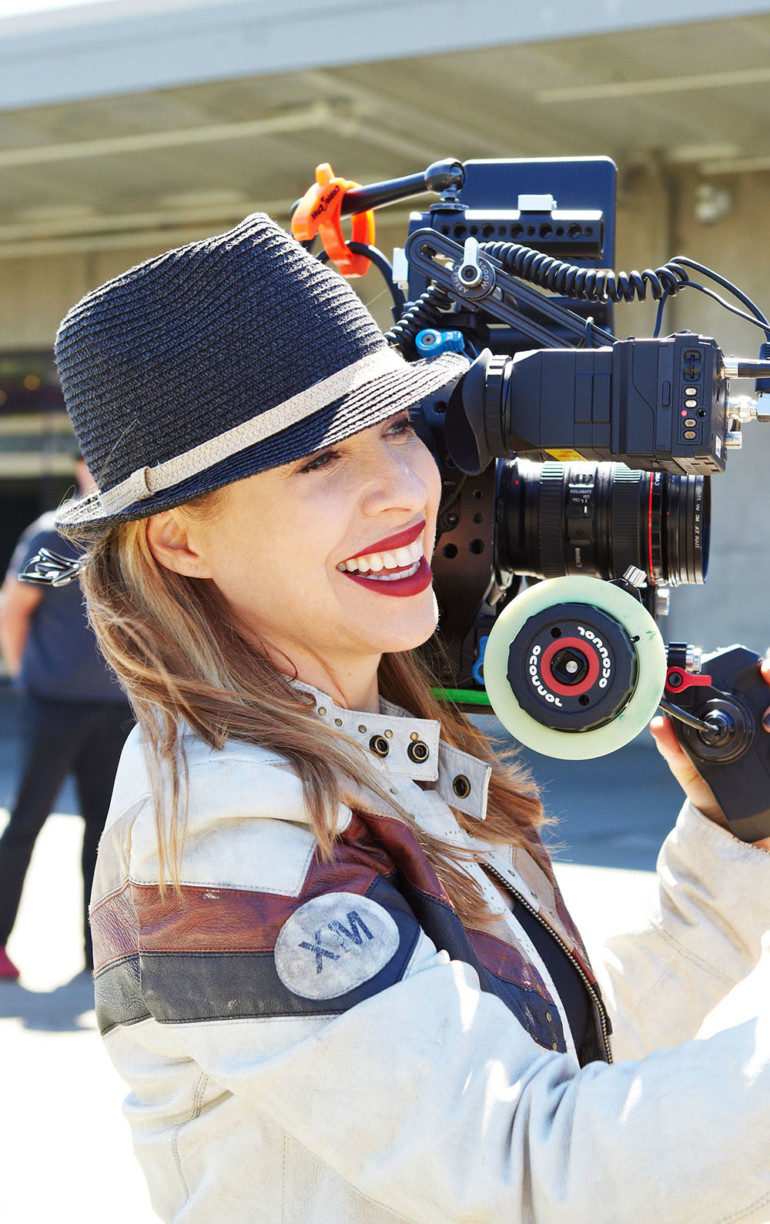
In our November 2010 issue we sat down with Webby Awards founder and Marin County native Tiffany Shlain. Since her initial interview with us, she has gone on to creating an AOL (America Online) original series titled The Future Starts Here. Getting ready to premiere season two of her original series, I was able to ask Tiffany questions about social media, which Marin County teachers helped her during her filmmaking path and motherhood while working. Can't forget to mention that she tells us about season two of The Future Starts Here.
1. Watching the first episode of season one really resonated with me since I am Jewish and try to keep a “technology Shabbat” at home, as well. What are the three most important things about “technology Shabbat” and what surprised you (or didn’t) about turning off? It’s very inspiring to me that so many people have started their own versions of Technology Shabbats (the episode has been viewed 4 million times, so it’s certainly resonating). One of my favorite things is to receive an email from someone sharing how the experience has changed their lives. The irony is that a) I am not religious (but super into the rituals) and b) Jews aren’t supposed to proselytize, and now here I am telling people to observe Shabbat. What’s surprised me about doing this weekly ritual is how it has helped me to feel more creative. I get such creative rush after not being online for 24 hours. It’s just a lot more time to let my mind wander. So much so that it’s inspired an episode for next season. I will look into the neuroscience and importance of mind wandering for creativity.
2. Season one, episode three is all about tech etiquette. I’m guilty of pulling out my phone while having dinner at a restaurant. Since filming that episode, have you been more aware of when you, or people around you, are breaking proper tech etiquette rules? Yes. A lot of time I make a film to understand something more deeply, try to figure it out for myself and to be more mindful in general.
3. In season one, episode six, you discuss the creative process. In making The Future Starts Here season 2, have you found yourself going through all 10 steps of the creative process? That is a great question! Yes. My sister’s writing about her stages of the creative process inspired that episode and, for season 2, I’m delving into how constraints can free you creatively. That episode is called Creative Bondage.
4. I know you grew up in Marin. During your filmmaking path, did you have any teachers here that especially inspired you? Mrs. Pollard was my 7th grade social studies teacher at Mill Valley Middle School and she had such a love for history and social studies which she inspired in me…but maybe more importantly she taught me how to outline! And surprisingly it’s been such an important skill that I’ve taken with me and applied to everything. Organizing ideas in a proper idea flow is essential. Sequoia Theater in Mill Valley was our weekly ritual. It was kind of our temple. Each week. Chinese food, a movie at the Sequoia and ice cream at Baskin and Robbins where we would discuss and dissect the film. Film was a tool for discussion, and that theater was part of my education for sure. Encouraging discussion from film: that’s very much my goal. That is very much my goal with film.
5. I loved how you said that you and your husband are a combination of optimists and skeptics. Throughout the process of filming season one and now into season two of The Future Starts Here, have you found that you both are still optimists “with a healthy dose of skepticism”? There’s always going to be dark things happening in the world that of course we need to respond to, and there's always going to be news and books and movies and friends and family that imagine the worst things that could happen. But I really believe that we can also choose to focus on the good. The potential of humanity. The progress we’ve made. Not in a Pollyanna way, but with a good understanding of the past, looking critically at our history and how far we come.
6. What do you look for in a successful website and successful social media presence? Two-way engagement. You don’t want people to make you feel bad, like life is all perfect and you just want to show that. I find that people on Facebook who just post with that vibe feel inauthentic. I think it’s important to also ask questions, share what you’re struggling with (but not too much). Show the full range of being human.
7. Since ending season one, and season two to start in October, are you still able to balance motherhood and work-life? I remember a wise woman approached me when I was pregnant with my first child. I asked for advice on being a working mom and she smiled and said, “If you are a working mother, get used to never achieving balance. It’s an illusion.” I am so grateful that that she encouraged me to cross that goal off my list early on. But let’s just say I make time to be present with my kids and I am so grateful I have a career I love. My mom went back to school to become a psychologist when I was growing up. I loved seeing her and my father love what they did in addition to being parents. For myself, I only go to my film studio in San Francisco two days a week and the other three days I am picking up the kids from school, play dates, after school activities. But those two days at work I focus for 10 to 12 hours straight. And the technology Shabbats rebalance the whole week. It’s a work hard, relax fully model.
8. Can you give me any exclusive details as to what will be covered in season two of The Future Starts Here? This season will explore a wide range of topics related to the impact technology has on our lifestyles – from the evolution of social media, to thoughts on the future of our species inspired by my father’s last book he finished just before passing away five years ago. It comes out this October, too. My siblings and I were very devoted to making sure the book got out into the world, so we’re really excited. It’s called “Leonardo’s Brain: Understanding Da Vinci’s Creative Genius.” He believed Da Vinci offered a glimpse into how we may become. He has always taught us that’s important to look at the past to understand how we can shape our days and our future.
Here's your sneak peek at season 2 of The Future Starts Here with Tiffany Shlain.


